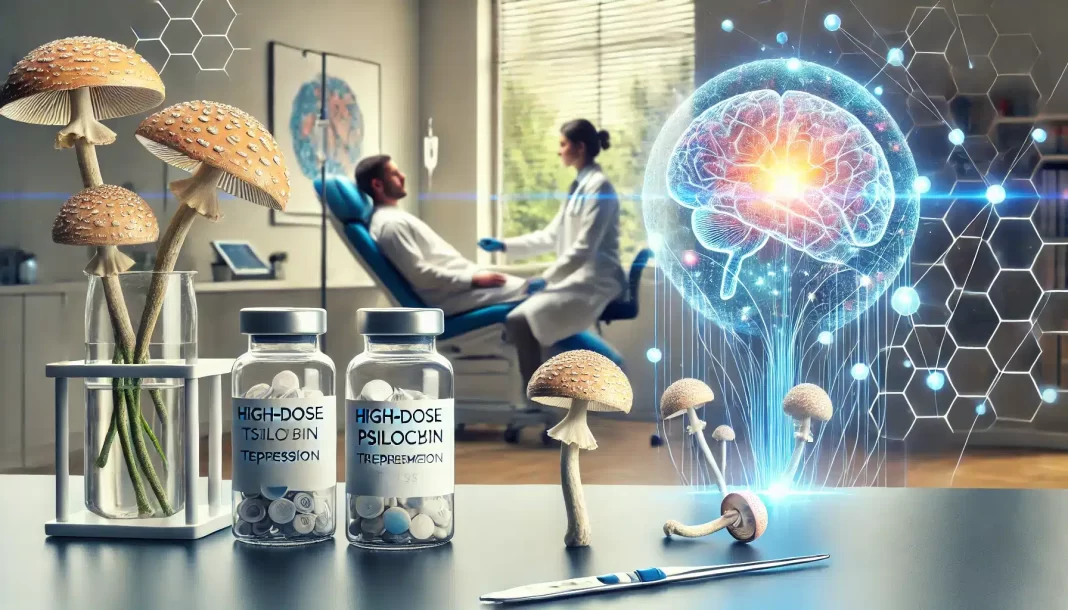High-dose psilocybin, the active compound in certain species of psychedelic mushrooms, has emerged as one of the most promising treatments for depression, particularly in cases where traditional antidepressants have failed. Recent studies have shown that psilocybin’s fast-acting nature and long-lasting effects are reshaping the landscape of depression treatment. For individuals struggling with treatment-resistant depression, high-dose psilocybin offers new hope for managing their mental health.
How Does Psilocybin Work?
Psilocybin works by targeting serotonin receptors in the brain, particularly 5-HT2A receptors, which play a critical role in mood regulation. Unlike traditional antidepressants, which often take weeks to show results, psilocybin has been found to significantly improve mood and reduce symptoms of depression after just a single session. In particular, studies have shown that high-dose psilocybin therapy can result in long-lasting improvements, with some participants experiencing relief for weeks or even months.
Clinical Trials and Key Findings
Recent studies published in leading medical journals, including the British Medical Journal and The Journal of Psychopharmacology, have highlighted several key findings:
- Rapid Symptom Relief: In clinical trials, participants reported significant improvements in depressive symptoms within days of receiving high-dose psilocybin. For some, these effects were observed as early as one week after treatment, offering faster relief than most conventional treatments.
- Effectiveness in Treatment-Resistant Depression: Psilocybin has been particularly effective in treating patients with treatment-resistant depression, a condition where traditional medications like SSRIs fail to provide adequate relief. In one study, participants who took high doses of psilocybin demonstrated greater reductions in depressive symptoms compared to those on standard antidepressants like escitalopram.
- Sustained Benefits: Unlike many traditional antidepressants that require daily administration, psilocybin’s effects have been shown to last for months after just a single high-dose session. This extended period of relief makes psilocybin a potentially groundbreaking treatment option for long-term management of depression .
Safety and Considerations
While psilocybin offers significant benefits, it is important to approach its use with caution. High doses should only be administered in controlled, clinical settings under the supervision of trained professionals. Some potential side effects include temporary anxiety, hallucinations, and emotional distress, especially when taken without appropriate psychological support. However, when used responsibly and with proper guidance, psilocybin has been found to have low risk of severe adverse events.
Why It Matters: A New Approach to Mental Health
High-dose psilocybin offers a revolutionary approach to treating mental health disorders. Its ability to provide rapid relief, particularly for those who have not found success with traditional therapies, makes it a vital tool in the fight against depression. With continued research, psilocybin could become a mainstay in psychiatric treatment, offering new avenues of hope for millions of individuals suffering from chronic depression.
Conclusion
High-dose psilocybin is proving to be a transformative treatment for depression, particularly for those struggling with treatment-resistant depression. As ongoing research highlights its effectiveness, the mental health community is increasingly recognizing the potential of this psychedelic compound to reshape how we approach depression treatment.





